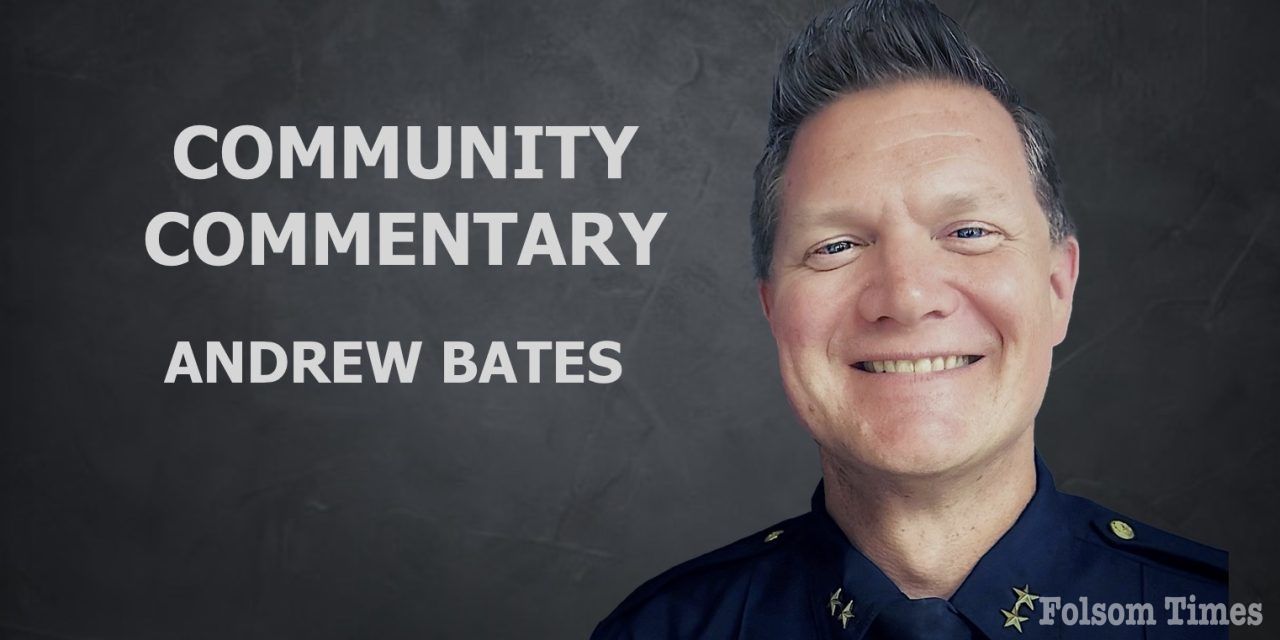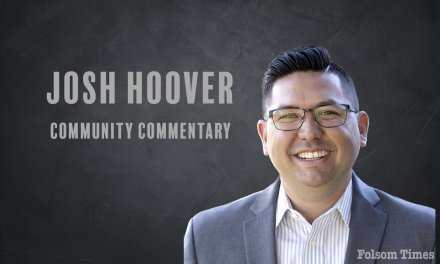By Commander Andrew Bates, Folsom Police Department
The following commentary was submitted as part of Command College Class 74, a leadership course through the California Commission on Peace Officer Standards and Training (POST). The purpose is to forecast future challenges in policing and prepare for that change. Among the critical changes we’re facing is the emergence of artificial intelligence (AI) and robotics.
A wave can knock you down or move you forward. It all depends on if you’re ready when it hits. Law enforcement today has a huge technology wave approaching. That wave is powered by AI, and yesterday was the best time to get ready.
Across the country, police departments are being stretched to the limit. Agencies struggle with mounting workloads, recruitment and retention challenges, and greater demands from the community. Officers, in turn, are becoming jack-of-all-trades. They handle it all from mental health calls to cyber investigations. While other industries are using AI to tackle routine tasks like flipping burgers, customer service calls and even deliveries, law enforcement is playing catch up, adopting the technology that large vendors choose to offer. In Sacramento, AI-powered parking enforcement cameras are mounted on buses to spot and enforce violations. Artificial intelligence chat bots have been tested in a few departments to answer non-emergency calls. Software like Axon’s Draft One can analyze hours of body-worn camera footage and help with writing up reports. It can be time-saving and reduce administrative tasks for officers. These are definite advantages, especially when agencies are trying to do more with less.
But along with these advantages, there are genuine concerns. Facial recognition technology has been wrong. AI reports will have to be carefully examined in order to be certain that they are fair and accurate. There are legitimate concerns about control, responsibility, and the risk of excessive surveillance.
The answer is not to avoid AI altogether. Instead, it’s for law enforcement to take the initiative and decide how this technology is used. That starts with open communication. Agencies must engage with their communities, tell them clearly how AI is being applied, and listen to concerns that are raised. Transparency builds trust. Trust is what supports good public safety.
Preparation also occurs internally. Officers need to be educated on how AI works, what it can and cannot do, and how to use it ethically. Departments should create or participate in technology evaluation committees. Such committees can be comprised of law enforcement, community representatives, and technical experts who review tools prior to implementation. This has to evolve into legislative advocacy as well.
There are five main areas every department needs to address:
1. Monitoring: We need clear policies setting out proper usage of AI and protecting civil rights.
2. Discrimination Prevention: AI systems must be trained and tested on diverse data to avoid bias.
3. Transparency: Agencies must clearly explain how and why AI tools are being used.
4. Cybersecurity: AI systems must be protected from data breaches that can damage public trust.
5. Officers training: Officers must be trained with the expertise to use AI tools effectively and responsibly. Having the awareness of how to run the tool is not enough, they should learn how the tool works and where it may fail.
We are not discussing an era where police officers are replaced by machines. Policing is, and needs to remain, a human occupation. But by using AI intentionally, officers can dedicate more time to what matters most: engaging with the community, racing to an emergency, and solving a case. In most cases, it’s not a question of replacing people; it’s a question of giving professionals what they need to perform their job more efficiently.
The wave is coming. If we proceed with vision, we can surf its momentum to build stronger, more responsive public safety agencies. If we ignore it, we’re likely to be thrown face first into the sand when it hits.
Andrew Bates is a Commander with the Folsom Police Deparment.




